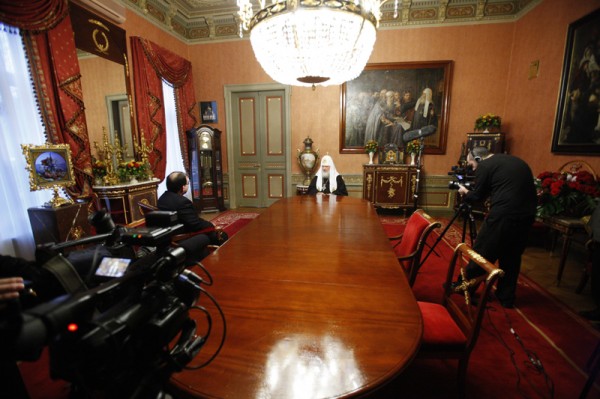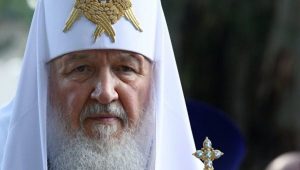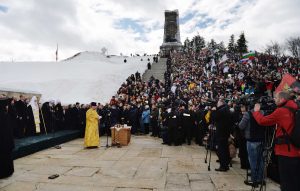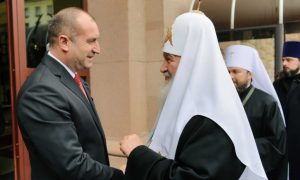In honor of the fifth anniversary of the Patriarch’s enthronement, we have chosen twenty lucid fragments from his sermons, speeches, programs, and interviews. Continued from part one.
5. On the Church
“It is mistaken to understand the Church only as a hierarchy: the bishops, priests, deacons, or other people who work in the Church. The Church is the entire people of God. The Church reveals itself when it celebrates the Divine Liturgy around its bishop or priest, and everyone has his own ministry within the Church. And the layman – that is, a baptized member of the Church – is not statist. A layman is someone who bears a special ministry in the Church. To be a layman is also a ministry, and we are dedicated to this ministry through the Mystery of Baptism.
“Therefore when in the life of the Church everything is done only by hierarchs or clergy, and the laity only attend divine services, this is very dangerous for the life of the Church, because in it the most important principle of church existence is not being realized: the Church as a community of faith, as the people of God, united around their bishop.”
(The program “Word of a Pastor” for May 28, 2011.)
6. On culture
“No living organism can live on synthetic products: sooner or later it will get sick. In the same way, society – as a living organism – cannot live on pseudo-culture and gloss: penny tabloid detective novels instead of literature, “star” shows instead of real music. Such synthetic “culture” also carries with it a certain kind of “values”: the pseudo-values of consumer “paradise,” love of luxury, frivolity, and irresponsibility. Pseudo-values lead to the degradation of any society. The problem is only that man does not see this degradation immediately.”
(Speech at a meeting of the Patriarchal Council for Culture on February 22, 2012.)
7. On Anti-Clericalism
“The Church can be compared with hospital wards, full of people, where there is evident pain and suffering; with an operation, where blood is spilled and where not everyone can enter without the risk of losing consciousness… All the same things, only in the spiritual realm, take place in the Church. Various people come to it: the sinful, the repentant, and those desiring peace, appeasement, and healing. Those who look at the Church from the outside criticize the Church for the fact that not everything is all right. But a surgeon who has just performed an operation will have his gown all smeared in blood and everything will be unsightly… And if a surgeon makes a mistake? We know how this ends and how many critics will come down on this doctor. The same thing happens in the Church. Looking at the Church from the outside suggests, as it were, that people who criticize the Church do not belong to it, that they are outside observers. But in fact more often than not the critics are also baptized people, with their own sicknesses and problems.”
(The program “Word of a Pastor” for June 10, 2012.)
8. On Sports
“There is a wonderful saying: ‘in a healthy body there’s a healthy spirit.’ It can be read one way or the other: ‘in a healthy body there’s a healthy spirit,’ or ‘a healthy spirit is a healthy body,’ because these are interrelated concepts, interrelated values, and I would like to illustrate this with the following example. Athletes, as perhaps no one else, understand what struggle [podvig] is, because every sporting victory is a struggle. This struggle is composed of very many factors and always has an inner, spiritual dimension. A soldier cannot attack or meet fire, defending the Motherland, without the loftiest inner motivation. A weak person cannot be an athlete who wins competitions and shows the best results. Struggle is always connected with a condition of soul. And here we reach a simple conclusion: a weak person is incapable of struggle. When I say ‘weak,” I do not mean a physically weak person – physically weak people are capable of struggle, and great struggle, if they are strong of spirit!”
(Meeting with Russian athletes on September 26, 2012.)
To be continued.
Translated from the Russian.




















